
Kigali: The Heartbeat of Rwanda
Kigali, the capital of Rwanda, is a vibrant city located in the heart of the country. It is known for its clean streets, lush hills, and friendly people. The city has undergone a remarkable transformation over the past few decades, becoming a symbol of Rwanda's progress and resilience. Tourists will find a mix of modernity and tradition, with bustling markets, contemporary architecture, and cultural landmarks. One of the must-visit places in Kigali is the Kigali Genocide Memorial. This site offers a poignant and educational experience about the tragic events of 1994. The memorial serves as a place of reflection and remembrance, providing a deeper understanding of Rwanda's history and the journey towards reconciliation and peace. Kigali is also a gateway to exploring Rwanda's natural beauty. The city is close to several national parks and wildlife reserves. Visitors can take day trips to see the famous mountain gorillas in Volcanoes National Park or enjoy a safari in Akagera National Park. The city's central location makes it an ideal base for discovering the country's diverse landscapes. Food enthusiasts will enjoy Kigali's culinary scene, which blends local Rwandan flavors with international cuisine. The city's restaurants and cafes offer a variety of dishes, from traditional Rwandan meals like brochettes and plantains to gourmet dining experiences. Don't miss the chance to visit the local markets, where you can try fresh fruits, vegetables, and unique local products. Kigali's growing arts and culture scene is another highlight. The city hosts various art galleries, music festivals, and cultural events throughout the year. The Inema Arts Center is a popular spot for art lovers, showcasing contemporary African art and providing a platform for local artists to share their work. Exploring Kigali's arts and culture will give you a deeper appreciation of the city's creative spirit and vibrant community.
Local tips in Kigali
- Carry local currency (Rwandan Francs) as some places may not accept credit cards.
- Visit the Kigali Genocide Memorial early in the day to avoid crowds and have a more reflective experience.
- Use reputable taxi services or ride-hailing apps for safe and reliable transportation around the city.
- Try to learn a few basic Kinyarwanda phrases; locals appreciate the effort and it can enhance your interactions.
- Stay hydrated and use sunscreen; Kigali's high altitude can make the sun feel stronger.
Neighbourhoods in Kigali
Kigali: The Heartbeat of Rwanda
Kigali, the capital of Rwanda, is a vibrant city located in the heart of the country. It is known for its clean streets, lush hills, and friendly people. The city has undergone a remarkable transformation over the past few decades, becoming a symbol of Rwanda's progress and resilience. Tourists will find a mix of modernity and tradition, with bustling markets, contemporary architecture, and cultural landmarks. One of the must-visit places in Kigali is the Kigali Genocide Memorial. This site offers a poignant and educational experience about the tragic events of 1994. The memorial serves as a place of reflection and remembrance, providing a deeper understanding of Rwanda's history and the journey towards reconciliation and peace. Kigali is also a gateway to exploring Rwanda's natural beauty. The city is close to several national parks and wildlife reserves. Visitors can take day trips to see the famous mountain gorillas in Volcanoes National Park or enjoy a safari in Akagera National Park. The city's central location makes it an ideal base for discovering the country's diverse landscapes. Food enthusiasts will enjoy Kigali's culinary scene, which blends local Rwandan flavors with international cuisine. The city's restaurants and cafes offer a variety of dishes, from traditional Rwandan meals like brochettes and plantains to gourmet dining experiences. Don't miss the chance to visit the local markets, where you can try fresh fruits, vegetables, and unique local products. Kigali's growing arts and culture scene is another highlight. The city hosts various art galleries, music festivals, and cultural events throughout the year. The Inema Arts Center is a popular spot for art lovers, showcasing contemporary African art and providing a platform for local artists to share their work. Exploring Kigali's arts and culture will give you a deeper appreciation of the city's creative spirit and vibrant community.
When is the best time to go to Kigali?
Iconic landmarks you can’t miss
Kigali Genocide Memorial
Explore the Kigali Genocide Memorial, a profound tribute to Rwanda's history, where education meets remembrance in a serene environment.
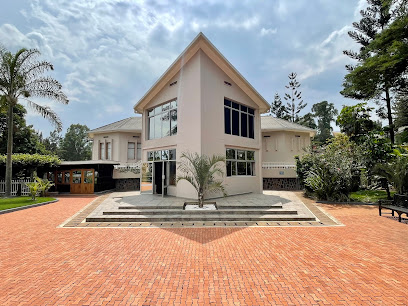
Kigali Convention Centre
Experience the modern charm of the Kigali Convention Centre, a key cultural and business hub in Rwanda's capital, showcasing stunning architecture and vibrant events.
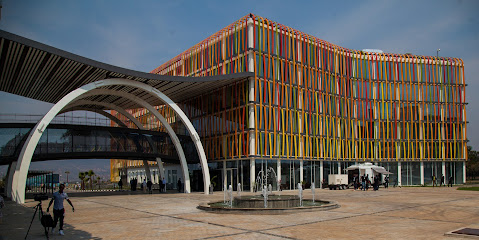
Kigali City Market
Discover the vibrant Kigali City Market, a cultural treasure where local flavors, crafts, and community come together in the heart of Rwanda's capital.
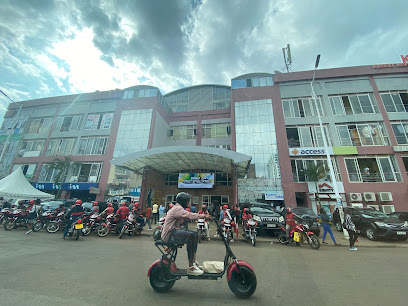
Hôtel des Mille Collines
Discover luxury and history at Hôtel des Mille Collines, Kigali's iconic hotel offering stunning views and exceptional amenities for an unforgettable stay.
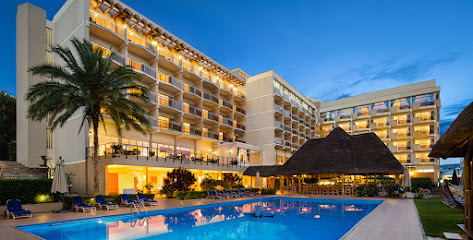
Inema Arts Centre
Explore the vibrant world of Rwandan art at Inema Arts Centre, a cultural hub showcasing local talent and creativity in the heart of Kigali.
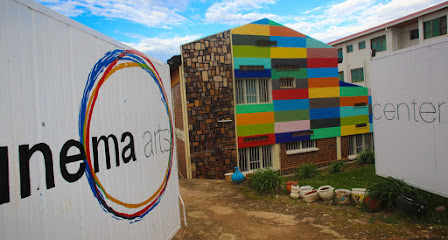
Kigali Conference and Exhibition Village (KCEV)
Explore Kigali's vibrant culture and modern business at the Kigali Conference and Exhibition Village, a premier destination for events and exhibitions.
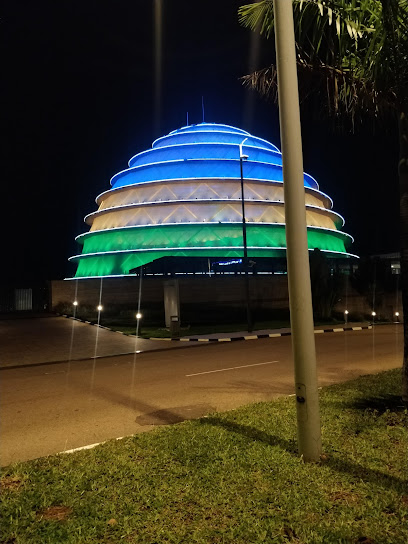
Kigali CarFree Zone
Experience the essence of Kigali in the Car Free Zone, a vibrant park perfect for relaxation, culture, and local cuisine.
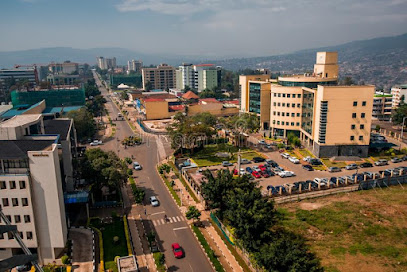
Rwanda Art Museum
Explore the Rwanda Art Museum, a cultural gem in Kigali, showcasing the evolution of Rwandan art and heritage through engaging exhibitions.
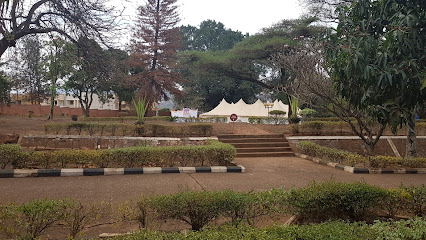
Kandt House Museum
Explore the Kandt House Museum in Kigali, a cultural treasure showcasing Rwanda's history, biodiversity, and the legacy of Dr. Richard Kandt.
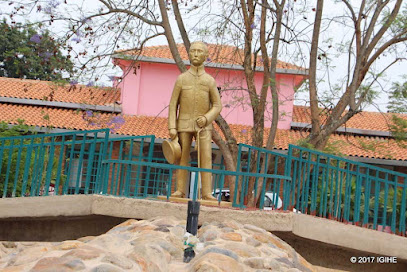
Centre Saint-Paul
Discover the vibrant heart of Kigali at Centre Saint-Paul, a premier conference center blending modern facilities with rich Rwandan culture and community engagement.
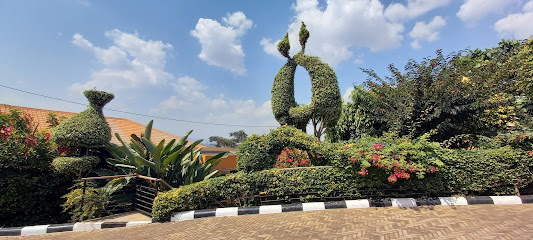
St Famille Church
Discover the architectural beauty and serene atmosphere of St Famille Church in Kigali, a significant cultural and spiritual landmark of Rwanda.
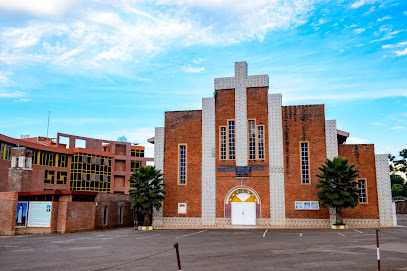
Belgian Peacekeepers Memorial
Explore the Belgian Peacekeepers Memorial in Kigali, a poignant tribute to sacrifice and peace amidst Rwanda's challenging history.
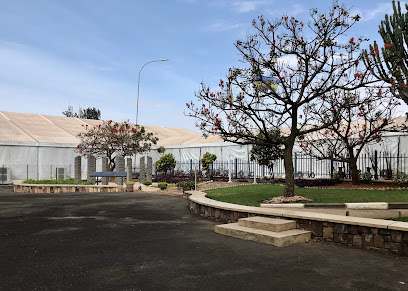
Niyo Arts Gallery
Discover the heart of Rwandan art and culture at Niyo Arts Gallery, a vibrant space showcasing local talent and creativity.
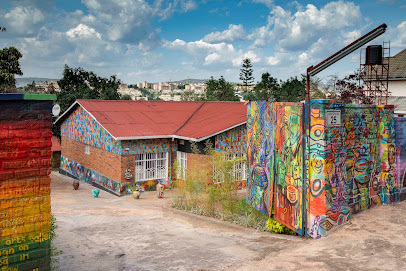
Now Now Rolex
Discover the authentic taste of Rwanda at Now Now Rolex, where street food meets vibrant culture in the heart of Kigali.
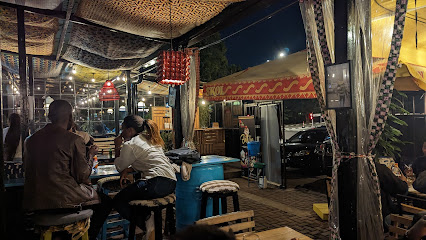
Romantic Garden
Discover the enchanting beauty of Kigali's Romantic Garden, a serene escape perfect for weddings, leisurely strolls, and unforgettable moments amidst nature.
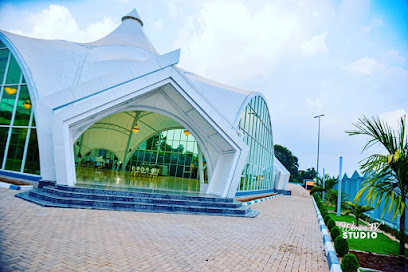
Unmissable attractions to see
Kigali Genocide Memorial
Explore the Kigali Genocide Memorial, a profound tribute to resilience and remembrance in Rwanda's history, reflecting on the lessons learned from the past.
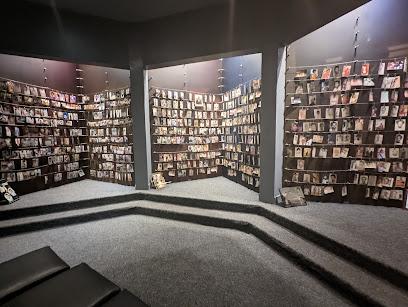
Kigali Convention Centre
Explore the architectural marvel of Kigali Convention Centre, a symbol of Rwanda's innovation and culture, offering stunning views and top-notch facilities.
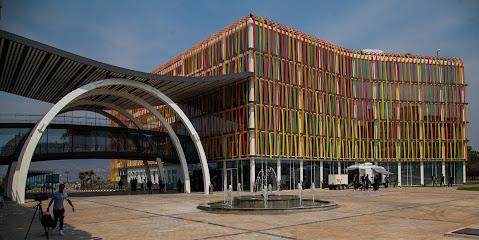
Inema Arts Centre
Explore Rwanda's vibrant art scene at Inema Arts Centre, a cultural gem in Kigali showcasing contemporary works and local talent.
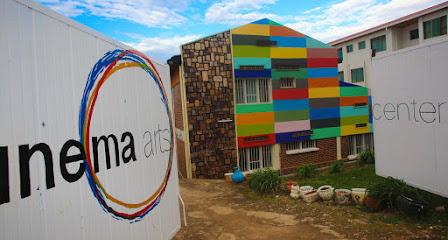
Kigali Conference and Exhibition Village (KCEV)
Discover innovation and culture at the Kigali Conference and Exhibition Village, Rwanda's premier destination for events and exhibitions.
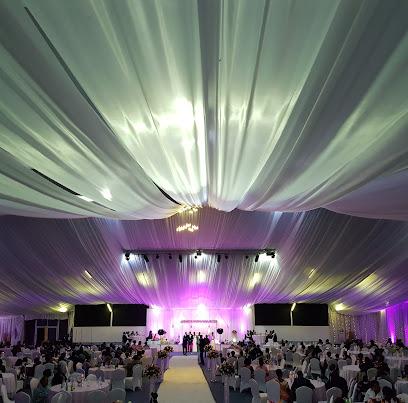
Nyandungu Urban Wetland Eco-Tourism Park
Experience the serenity of Nyandungu Urban Wetland Eco-Tourism Park in Kigali, a perfect blend of nature and eco-friendly tourism.
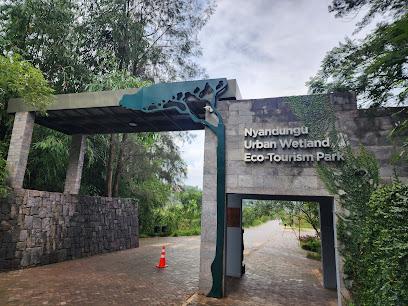
Kandt House Museum
Discover the rich history and cultural heritage of Rwanda at Kandt House Museum in Kigali, a perfect blend of education and exploration.
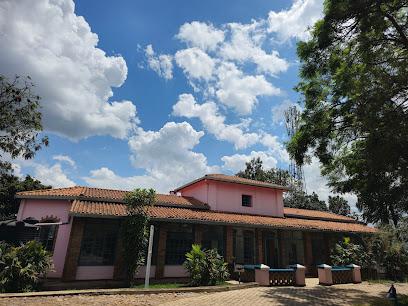
Rwanda Art Museum
Discover Rwanda's rich cultural heritage and artistic legacy at the Rwanda Art Museum in Kigali, a must-visit for art lovers and history enthusiasts alike.
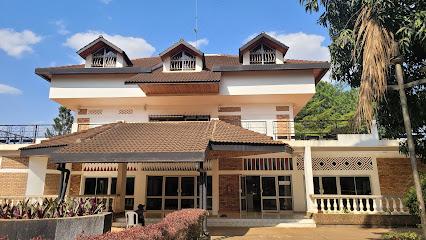
Niyo Arts Center
Explore the Niyo Arts Center in Kigali for an authentic glimpse into Rwandan culture through art, craftsmanship, and community engagement.
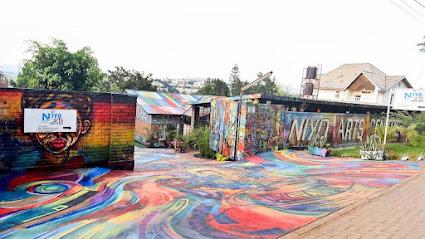
Campaign Against Genocide Museum
Explore Rwanda's poignant history at the Campaign Against Genocide Museum and witness the resilience of a nation determined to heal and educate.
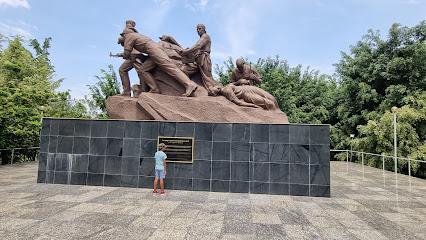
Nyanza Genocide Memorial
Explore the Nyanza Genocide Memorial in Kigali to honor the victims and learn about Rwanda's poignant history of resilience and reconciliation.
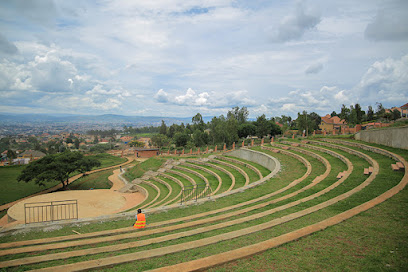
Nyamata Genocide Memorial Site
Visit Nyamata Genocide Memorial Site to honor the past and witness the powerful journey of Rwanda towards healing and reconciliation.
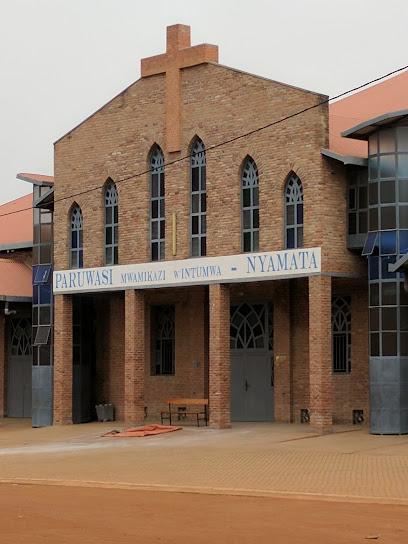
Cultural Green square Park
Experience the serene beauty and cultural richness of Kigali at Cultural Green Square Park, a lush oasis in the heart of the city.
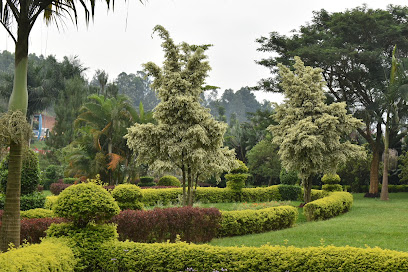
Azizi Life Studio
Explore the rich artistry of Rwanda at Azizi Life Studio, where every handcrafted piece tells a unique story.
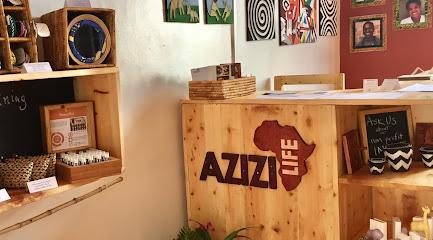
Ivuka Arts
Discover the vibrant world of Rwandan art at Ivuka Arts, a premier gallery and studio in Kigali showcasing contemporary creativity.
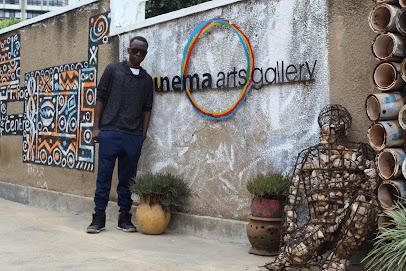
Panorama Hope Garden
Explore the breathtaking beauty of Panorama Hope Garden in Kigali, a serene escape with stunning views and vibrant landscapes, perfect for relaxation.
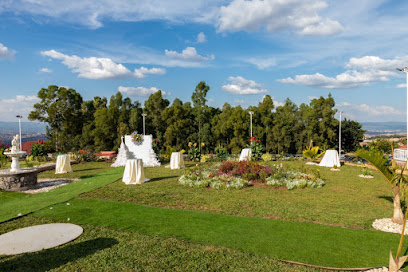
Essential places to dine
Pili Pili
Experience culinary delights at Pili Pili in Kigali - where local flavors meet international cuisine in a vibrant setting.
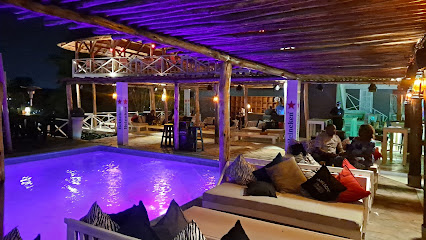
Sundowner
Experience the vibrant flavors of Rwanda at Sundowner - Kigali's premier grill restaurant with stunning views and a lively atmosphere.
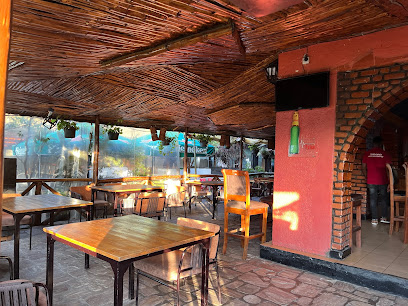
Sole Luna
Experience authentic Italian flavors at Sole Luna, Kigali's favorite destination for exquisite cuisine and warm hospitality.
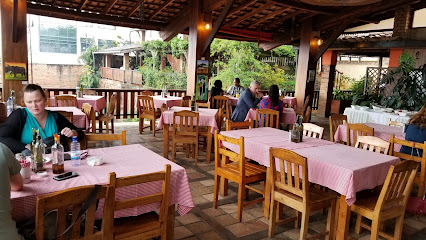
The Hut Restaurant and Boutique Hotel
Discover the culinary treasures of Rwanda at The Hut Restaurant and Boutique Hotel in Kigali, where comfort meets exquisite dining experiences.
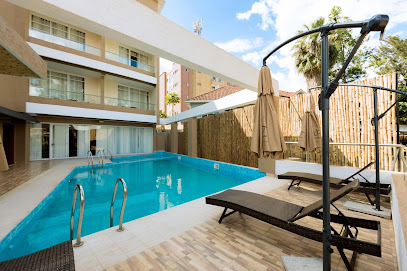
Khana Khazana Kiyovu
Experience authentic Indian cuisine in Kigali at Khana Khazana Kiyovu – where every meal is a celebration of flavor.
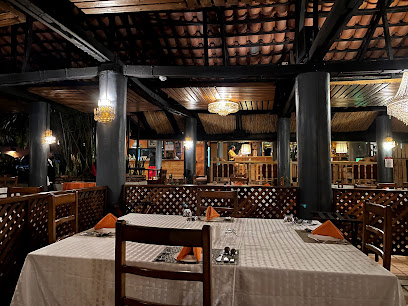
The house of mandi
Experience authentic Rwandan cuisine at The House of Mandi – where flavors come alive in every dish.
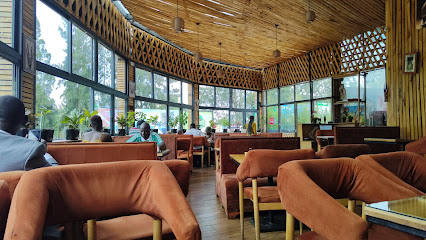
Repub Lounge
Experience Kigali's vibrant culinary scene at Repub Lounge, where local flavors meet global cuisine in an inviting atmosphere.
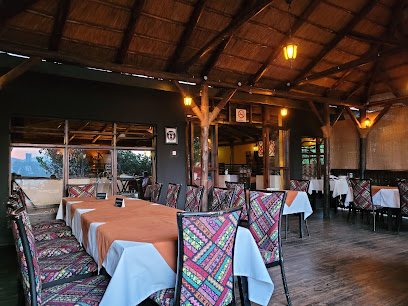
Kurry Kingdom
Experience authentic Indian cuisine at Kurry Kingdom in Kigali – where flavors meet hospitality in every dish.
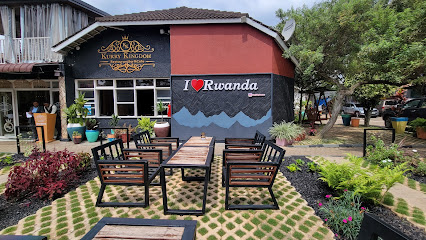
Inka Steakhouse
Discover the taste of Rwanda at Inka Steakhouse, where grilled perfection meets local flavors in Kigali's culinary scene.
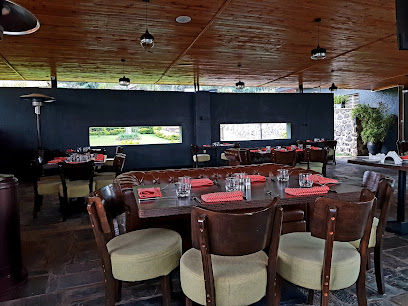
Heaven Restaurant & Boutique Hotel
Experience the best of Rwandan cuisine at Heaven Restaurant & Boutique Hotel in Kigali - where flavor meets comfort amidst stunning views.
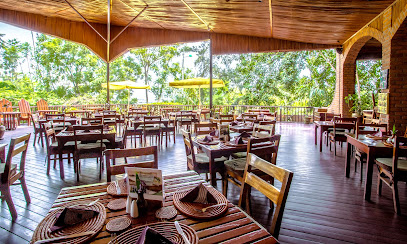
Lavana
Discover Lavana: A must-visit restaurant in Kigali blending local flavors with live music and sports for an unforgettable night out.
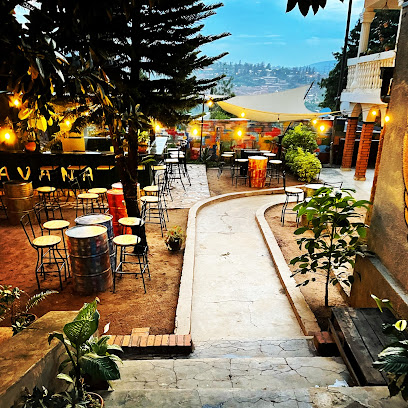
Bamboo Rooftop Restaurant
Experience exquisite Chinese cuisine and stunning views at Bamboo Rooftop Restaurant in Kigali - a must-visit dining destination.
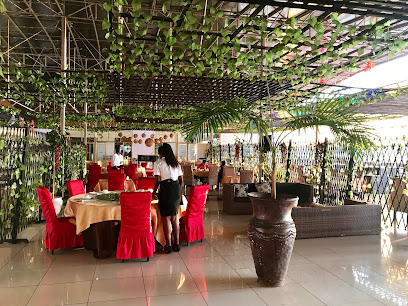
Soy Asian Table
Experience the rich flavors of South East Asia at Soy Asian Table in Kigali – where tradition meets modern dining excellence.
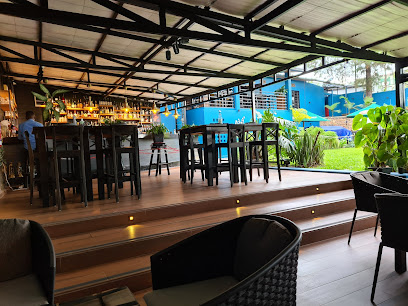
Casa Keza
Experience authentic Spanish cuisine at Casa Keza in Kigali - where every dish tells a story of tradition and flavor.
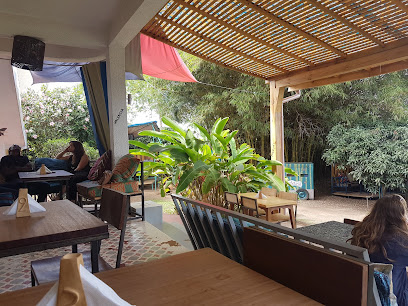
L'Épicurien
Experience the essence of French culinary artistry at L'Épicurien in Kigali—where every meal is a delightful journey.
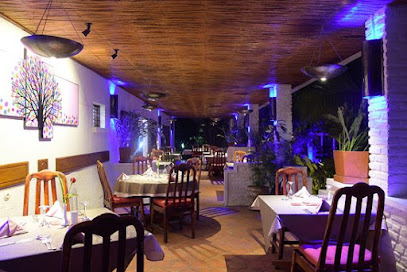
Markets, malls and hidden boutiques
Nziza Crafts
Discover unique handmade crafts and traditional Rwandan artistry at Nziza Crafts, the perfect souvenir store in Kigali.
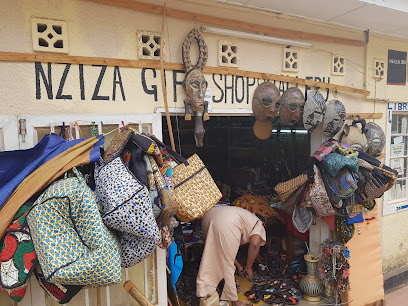
Roots Rwanda Online Shopping
Explore Roots Rwanda Online Shopping for a unique blend of local culture and modern e-commerce in Kigali, offering electronics, accessories, and more.
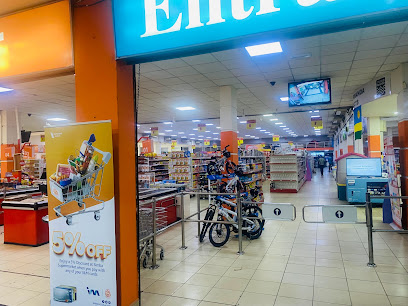
Abraham Konga Collections
Discover authentic African treasures at Abraham Konga Collections, where culture and craftsmanship converge in the heart of Kigali.
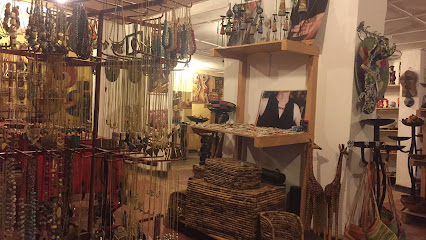
Celebrate Gift Shop
Discover unique Rwandan crafts and gifts at Celebrate Gift Shop in Kigali, a haven for souvenirs that reflect the essence of Rwanda's culture.

Made in Rwanda Shop
Explore the heart of Rwandan craftsmanship at the Made in Rwanda Shop, where unique, artisanal treasures await every visitor.
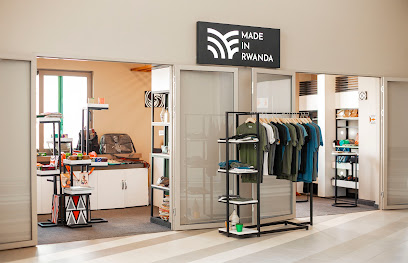
Tic-Tac-Toe (Gift Shop)
Explore the vibrant Tic-Tac-Toe Gift Shop in Kigali for unique souvenirs, handcrafted gifts, and a taste of Rwandan culture.
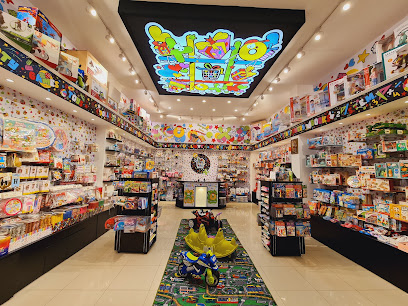
KICIRWANDA
Explore KICIRWANDA in Kigali, where vibrant Rwandan crafts and artistry come alive in a unique shopping experience.
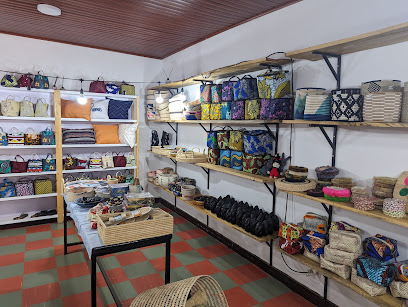
The Shop
Explore The Shop in Kigali for unique Rwandan gifts and handicrafts, capturing the essence of local culture and artistry.
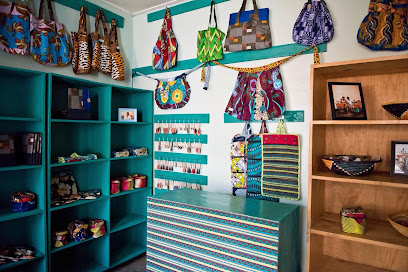
Kabash Fashion House Shop
Discover the best of Rwandan fashion at Kabash Fashion House in Kigali, where tradition meets contemporary style for an unforgettable shopping experience.

Neza Tshirts Rwanda
Discover unique t-shirts and souvenirs that celebrate Rwandan culture at Neza Tshirts Rwanda, located in the heart of Kigali's Chic Building.
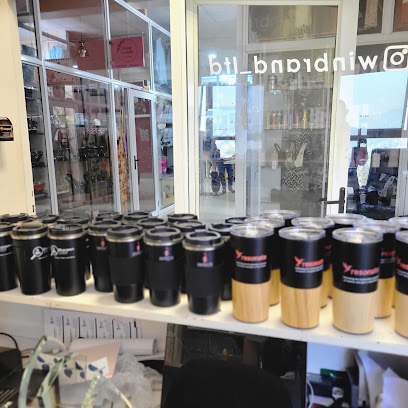
Gift & Stuff Rwanda
Discover authentic Rwandan gifts and unique souvenirs at Gift & Stuff Rwanda, your go-to shop in Kigali for memorable keepsakes.
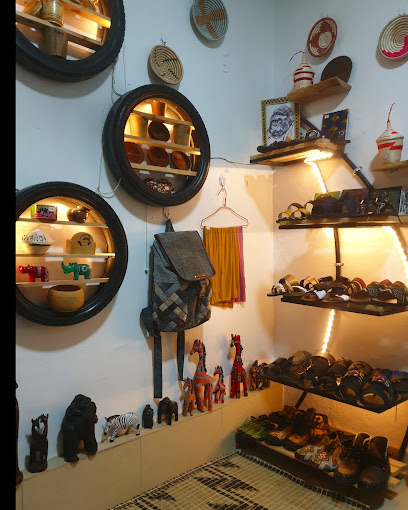
Ikaze Showroom
Explore Ikaze Showroom, a hub of Rwandan craftsmanship offering authentic crafts and goods that embody the rich cultural heritage of Rwanda.
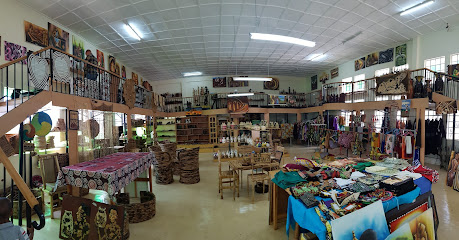
Aiemstore
Shop at Aiemstore in Kigali for unique Rwandan gifts and souvenirs that embody the essence of local culture and craftsmanship.

Accessorize with Style
Accessorize with Style in Kigali: Discover unique fashion accessories and jewelry that blend tradition with modern elegance for every occasion.
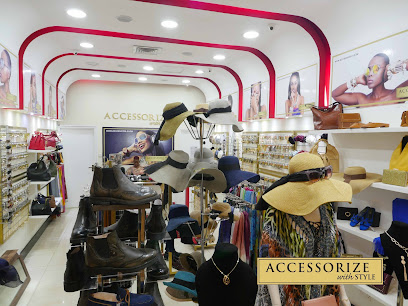
Kigaligifts
Explore Kigaligifts in Kigali for unique Rwandan crafts and souvenirs that embody the essence of local culture and artistry.
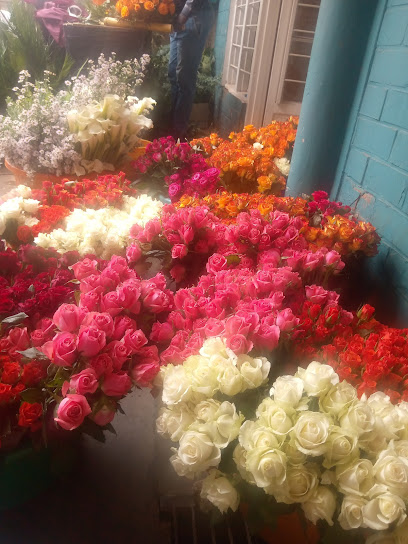
Essential bars & hidden hideouts
Pili Pili
Experience the vibrant culinary scene of Kigali at Pili Pili, a charming grill and bistro offering delicious local and international dishes.
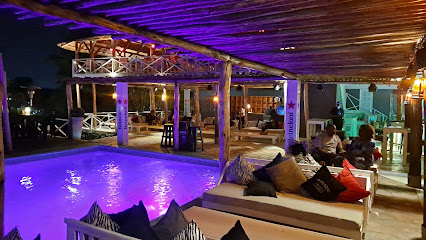
Sundowner
Discover the vibrant taste of Kigali at Sundowner, where mouthwatering grilled dishes meet stunning city views in a lively atmosphere.
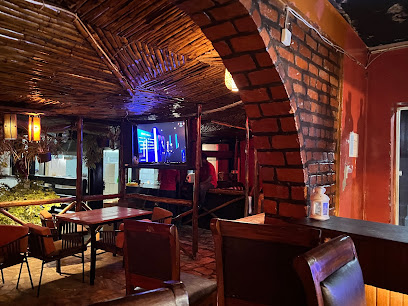
Riders Lounge Kigali
Explore Kigali's vibrant nightlife at Riders Lounge, a premier restaurant and bar offering delicious meals and innovative cocktails in a lively atmosphere.
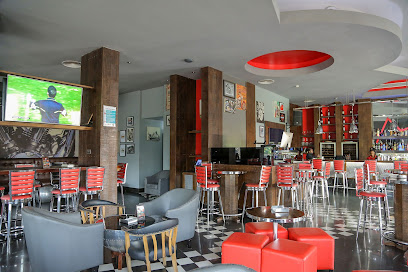
Repub Lounge
Discover Kigali's vibrant Repub Lounge, where local flavors meet international cuisine in a lively bar and restaurant atmosphere.
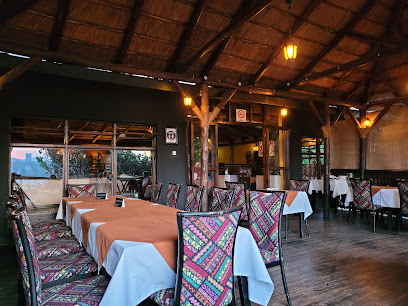
Choma'd Bar & Grill
Experience the vibrant culinary scene at Choma'd Bar & Grill, where delicious grilled dishes and a lively atmosphere await in Kigali.
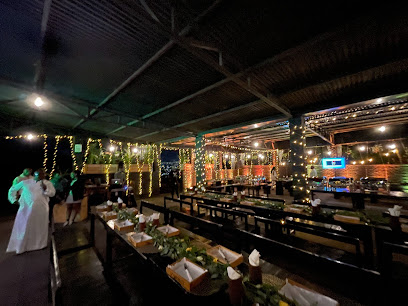
Best BelAir Bar & Restaurant
Experience the vibrant flavors and atmosphere at Best BelAir Bar & Restaurant in Kigali, the perfect spot for tourists to unwind and enjoy local cuisine.
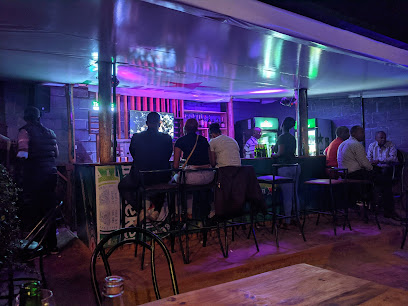
Chillax Lounge
Experience the vibrant nightlife at Chillax Lounge in Kigali, where modern ambiance meets expertly crafted cocktails and delicious bites.
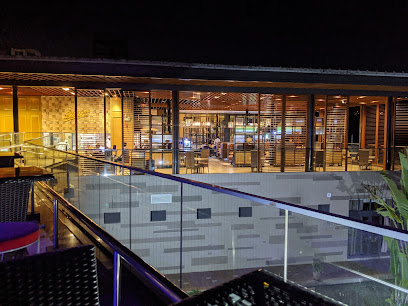
Rosty Club
Discover the lively Rosty Club in Kigali – a vibrant bar and grill perfect for a memorable night out with friends, featuring local cuisine and great entertainment.
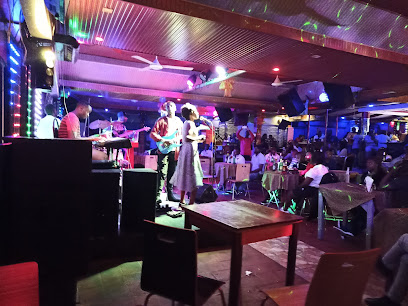
Blackstone Lounge Kigali
Discover the vibrant atmosphere and delicious flavors at Blackstone Lounge, the perfect spot to unwind in Kigali's bustling heart.
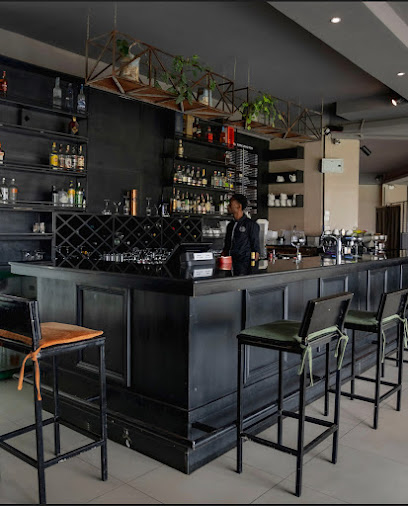
Billy's Bistro & Bar
Experience the vibrant flavors of Kigali at Billy's Bistro & Bar, where local cuisine meets a lively atmosphere for a memorable dining experience.
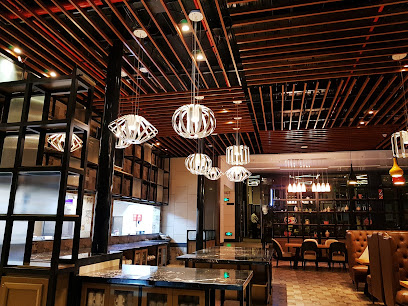
Maison Noire Bar & Restaurant
Discover the vibrant atmosphere and delicious cuisine at Maison Noire Bar & Restaurant in Kigali, a hotspot for locals and tourists.
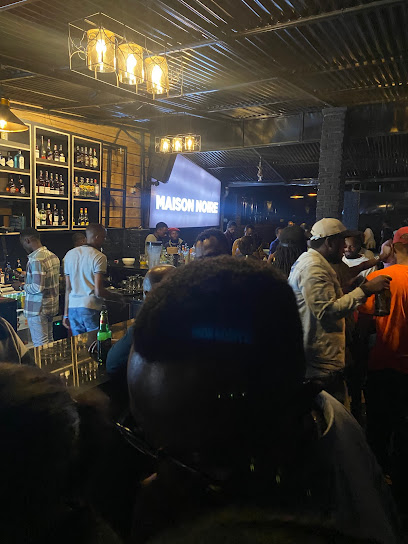
Iriba Bar & Terrace
Experience Kigali's vibrant nightlife and stunning skyline views at Iriba Bar & Terrace, a perfect retreat for relaxation and enjoyment.
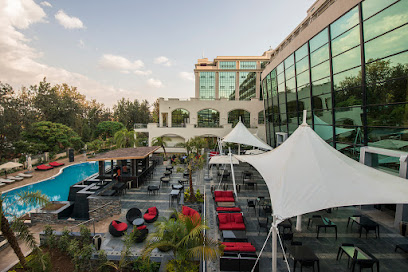
Y&T Cocktail Bar And Creperie
Discover Y&T Cocktail Bar And Creperie in Kigali for refreshing drinks and delicious crepes, capturing the vibrant spirit of Rwanda.
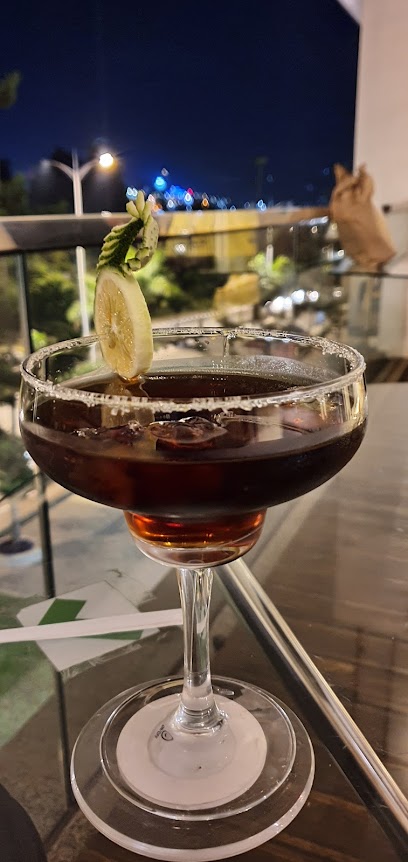
Facebook Pub
Discover the charm of Facebook Pub in Kigali, a grill where local flavors meet a vibrant atmosphere perfect for relaxation and enjoyment.
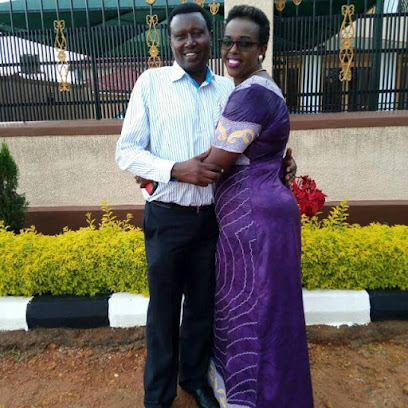
Local Phrases
-
- HelloMuraho
[moo-rah-ho] - GoodbyeMurabeho
[moo-rah-beh-ho] - YesYego
[yeh-go] - NoOya
[oh-ya] - Please/You're welcomeNgiyakubona
[nee-yah-koo-boh-nah] - Thank youMurakoze
[moo-rah-koh-zay] - Excuse me/SorryNdasaba
[ndah-sah-bah] - How are you?Amakuru?
[ah-mah-koo-roo] - Fine. And you?Ni meza. Wewe?
[nee meh-zah. way-way] - Do you speak English?Wavuga iki gahunda?
[wah-voo-gah ee-kee gah-hoon-dah] - I don't understandNtazi
[en-tah-zee]
- HelloMuraho
-
- I'd like to see the menu, pleaseNifuuse inzira, kubanjiriza
[nee-foo-seen-zee-rah, koo-bahn-jee-ree-zah] - I don't eat meatSinziba inyama
[seen-zee-bah ee-nyah-mah] - Cheers!Amahoro!
[ah-mah-ho-ro] - I would like to pay, pleaseNifuuse guhagarika, kubanjiriza
[nee-foo-seh goo-hah-gah-ree-kah, koo-bahn-jee-ree-zah]
- I'd like to see the menu, pleaseNifuuse inzira, kubanjiriza
-
- Help!Ubwira!
[ooh-wee-rah] - Go away!Jya hasi!
[jee-yah hah-see] - Call the Police!Andika polisi!
[ahn-dee-kah poh-lee-see] - Call a doctor!Andika dokoteli!
[ahn-dee-kah doh-koh-teh-lee] - I'm lostNdimenye
[n-dee-men-yeh] - I'm illNdimwe
[n-deem-weh]
- Help!Ubwira!
-
- I'd like to buy...Nifuuse gukora...
[nee-foo-seh goo-koh-rah] - I'm just lookingNifuuse guhita
[nee-foo-seh goo-hee-tah] - How much is it?Ni iki bariya?
[nee ee-kee bah-ree-yah] - That's too expensiveNi hima cyane
[nee hee-mah chyah-neh] - Can you lower the price?Wibagirwe iki bariya?
[wee-bah-gee-rweh ee-kee bah-ree-yah]
- I'd like to buy...Nifuuse gukora...
-
- What time is it?Ni iyi saa ngapi?
[nee ee-yee sah nah-gah-pee] - It's one o'clockNi saa imwe
[nee sah eem-weh] - Half past (10)Saa imwe n'igice
[sah eem-weh nee-gee-chay] - MorningKuba mu gitondo
[koo-bah moo gee-tohn-doh] - AfternoonKuba mu gitondo cya mugitondo
[koo-bah moo gee-tohn-doh chyah moo-gee-tohn-doh] - EveningKuba mu gitondo cya saha
[koo-bah moo gee-tohn-doh chyah sah-hah] - YesterdayEjo
[eh-joh] - TodayEjo
[eh-joh] - TomorrowEjo
[eh-joh] - 1Rimwe
[ree-mweh] - 2Kabiri
[kah-bee-ree] - 3Gatatu
[gah-tah-too] - 4Kane
[kah-nay] - 5Gatanu
[gah-tah-noo] - 6Gatandatu
[gah-tahn-dah-too] - 7Kumwe
[koom-weh] - 8Nyanya
[nee-yah-nyah] - 9Kenda
[ken-dah] - 10Mushya
[moo-shyah]
- What time is it?Ni iyi saa ngapi?
-
- Where's a/the...?Ejo he?
[eh-joh heh] - What's the address?Aho gahunda ni iki?
[ah-hoh gah-hoon-dah nee ee-kee] - Can you show me (on the map)?Wibagirwe kandika (kuri gahunda)?
[wee-bah-gee-rweh kahn-dee-kah koo-ree gah-hoon-dah] - When's the next (bus)?Iki gihe iyo isaha iheruka?
[ee-kee gee-hee ee-yoh ee-sah-hah ee-heh-roo-kah] - A ticket (to ....)Ibiketi (kuri ....)
[ee-bee-kay-tee koo-ree]
- Where's a/the...?Ejo he?
History of Kigali
-
Before the arrival of European colonizers, the area now known as Kigali was inhabited by several indigenous tribes, including the Hutu, Tutsi, and Twa. The region was part of the Kingdom of Rwanda, which had a complex social structure and a rich cultural heritage. Traditional Rwandan society was organized around a monarch, known as the Mwami, who was considered both a political and spiritual leader.
-
In the late 19th century, Rwanda became a target for European colonization. Initially claimed by Germany in 1884 as part of German East Africa, Rwanda, including Kigali, came under Belgian control after World War I. The Belgians governed Rwanda under a League of Nations mandate, later transitioning to a United Nations trust territory. The colonial period saw significant changes in Kigali, including the introduction of Western education, Christianity, and administrative systems.
-
Kigali was founded in 1907 by German explorer and administrator Richard Kandt. Initially established as a colonial outpost, Kigali's strategic location in the center of Rwanda made it a convenient administrative hub. Over the years, the city expanded and developed, becoming an important center for trade and governance.
-
Rwanda gained independence from Belgium on July 1, 1962. Kigali was chosen as the capital of the newly independent nation, due to its central location and existing infrastructure. The early post-colonial period was marked by political instability and ethnic tensions between the Hutu and Tutsi communities, which had been exacerbated by colonial policies.
-
One of the most tragic periods in Kigali's history occurred in 1994, during the Rwandan Genocide. Over the course of approximately 100 days, an estimated 800,000 Tutsi and moderate Hutu were killed by extremist Hutu militias. Kigali was a significant site of violence and suffering during this period. The genocide left a profound impact on the city's population and infrastructure.
-
Following the genocide, Kigali underwent a remarkable transformation. The Rwandan Patriotic Front (RPF) took control of the country, and efforts were made to rebuild the city and heal the deeply divided society. Kigali has since become a symbol of resilience and progress, with extensive urban development, modernization projects, and a focus on reconciliation and unity.
-
Today, Kigali is a vibrant and rapidly growing city, known for its cleanliness, safety, and progressive policies. It is a hub for international organizations, businesses, and conferences, often referred to as the 'Singapore of Africa.' The city boasts modern infrastructure, including the Kigali Convention Centre, numerous hotels, and an efficient public transportation system. Kigali also embraces its cultural heritage, with landmarks such as the Kigali Genocide Memorial, which serves as a poignant reminder of the past while promoting education and peace.
Kigali Essentials
-
Kigali is serviced by Kigali International Airport (KGL), located about 5 kilometers east of the city center. The airport is well-connected with major cities in Africa, Europe, and the Middle East. Direct flights are available from cities like Nairobi, Addis Ababa, Istanbul, Doha, and Amsterdam. From the airport, you can take a taxi or use a ride-hailing service to reach your accommodation in Kigali.
-
Kigali offers various transportation options, including taxis, moto-taxis (motorcycle taxis), and public buses. Taxis are available throughout the city, and ride-hailing apps like Yego and SafeMotos provide convenient services. Moto-taxis are a quick and affordable way to get around but make sure to wear a helmet. Public buses operate on fixed routes and are an economical option for traveling within the city. Car rentals are also available for those who prefer to drive themselves.
-
The official currency in Rwanda is the Rwandan Franc (RWF). Credit cards are widely accepted in hotels, restaurants, and major shops in Kigali, but it is advisable to carry some cash for smaller establishments and markets. ATMs are readily available throughout the city, and many accept international cards. It's a good idea to inform your bank of your travel plans to avoid any issues with card transactions.
-
Kigali is considered one of the safest cities in Africa, but it is still important to take standard precautions. Avoid walking alone at night and be cautious in crowded areas to prevent pickpocketing. Some neighborhoods, such as Nyamirambo and Kimironko, are known for higher crime rates targeting tourists, so exercise extra caution in these areas. Always keep your belongings secure and be aware of your surroundings.
-
In case of emergency, dial 112 for police assistance, 110 for the fire department, and 912 for medical emergencies. Kigali has several hospitals and clinics, including King Faisal Hospital and the University Teaching Hospital of Kigali. Make sure you have travel insurance that covers medical emergencies. Pharmacies are available throughout the city for over-the-counter medications.
-
Fashion: Do dress modestly, especially when visiting religious sites and rural areas. Avoid revealing clothing. Religion: Do respect local customs and traditions. Remove your shoes when entering religious sites and dress appropriately. Public Transport: Do be respectful to fellow passengers and give up your seat to elderly persons. Don't eat or drink on public transport. Greetings: Do greet people with a handshake and maintain eye contact as a sign of respect. Eating & Drinking: Do try local dishes and accept food offerings graciously. Don't refuse hospitality, as it is considered impolite.
-
To experience Kigali like a local, visit the Kimironko Market for fresh produce and traditional Rwandan goods. Engage with locals, as they are often friendly and willing to share stories about their culture and history. Don't miss a visit to the Kigali Genocide Memorial to understand Rwanda's history and resilience. For a unique experience, take a stroll through the Nyamirambo neighborhood, known for its vibrant culture and street art.
Trending Landmark in Kigali
-
Kigali Genocide Memorial
-
Kigali Convention Centre
-
Kigali City Market
-
Hôtel des Mille Collines
-
Inema Arts Centre
-
Kigali Conference and Exhibition Village (KCEV)
-
Kigali CarFree Zone
-
Rwanda Art Museum
-
Kandt House Museum
-
Centre Saint-Paul
-
St Famille Church
-
Belgian Peacekeepers Memorial
-
Niyo Arts Gallery
-
Now Now Rolex
-
Romantic Garden
Nearby Cities to Kigali
-
Things To Do in Nyamata
-
Things To Do in Muhanga
-
Things To Do in Ruhengeri
-
Things To Do in Karongi
-
Things To Do in Kirundo
-
Things To Do in Nyagatare
-
Things To Do in Kibuye
-
Things To Do in Butare
-
Things To Do in Rubavu
-
Things To Do in Gisenyi
-
Things To Do in Muyinga
-
Things To Do in Ngozi
-
Things To Do in Kayanza
-
Things To Do in Cibitoke
-
Things To Do in Muramvya
















